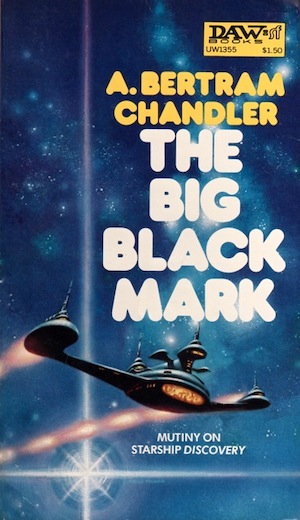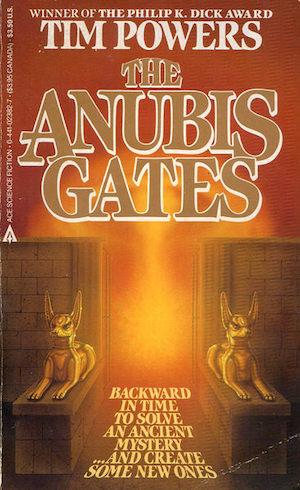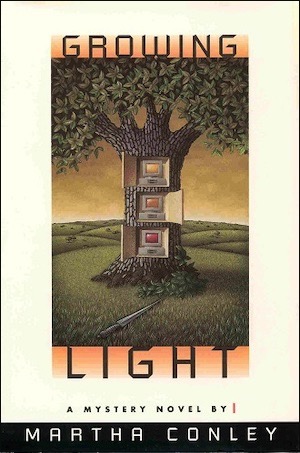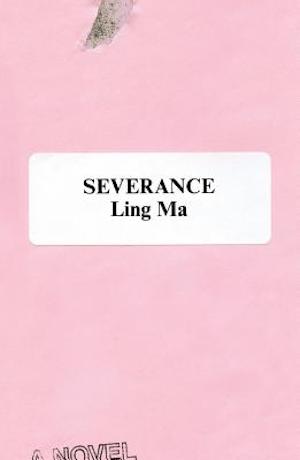Laurence J. Peter’s Peter Principle is elegantly simple: “In a hierarchy, every employee tends to rise to his level of incompetence.”
The corollary is, of course: “In time, every post tends to be occupied by an employee who is incompetent to carry out its duties.”
This is because people who are good at their jobs tend to be promoted. Given sufficient time, they will be promoted from a position in which their skills, aptitudes, and experience were applicable, to one in which they are not. Having reached that level, meritocratic promotion halts.
The effect of this principle may be disheartening1; it implies that even if one escapes being an example of the Peter Principle, one may well end up working under or supervising an example of the Peter Principle.2
For authors, on the other hand, the Peter Principle can be the germ of many fascinating plots. Characters can prove their mettle by creatively circumventing incompetent bosses or subordinates… or they can serve as cautionary tales. Herewith, five works illustrating the Peter Principle.
Mindswap by Robert Sheckley (1966)

Unable to afford the eye-watering expense of conventional space flight, Marvin settles for the more affordable option of swapping minds with a Martian named Ze Kraggash. Alas, Kraggash is a con-artist who rented the same body to two people. One body can support only one occupant. Marvin would like to go back to his old body, but the scoundrel Kraggash fled into hiding while wearing Marvin’s body.
Desperate to locate Kraggash, Marvin turns to Detective Urf Urdorf. Urdorf is utterly confident that he will catch Kraggash. Why is he so confident? Because Urdorf has failed to solve one hundred fifty-eight cases in a row.
“One hundred and fifty-eight failures! It’s a fantastic record, an unbelievable record, especially if you grant my incorruptibility, good faith, and skill. One hundred fifty-eight! A run like that simply has to break! I could probably sit here in my office and do nothing, and the criminal would find his way to me. That’s how strong the probabilities are in my favor.”
Is Urdorf’s unshakable confidence warranted? Everyone familiar with Sheckley knows the answer is no. Too bad for Marvin but huzzah for the readers.
The Big Black Mark by A. Bertram Chandler (1975)

Chandler wrote dozens of stories and novels about John Grimes, hero of the spaceways. Grimes often irritated his superiors, thanks to his bravado and lack of interest in paperwork and other such minutiae. Nonetheless, Grimes’ one sterling quality—stupendous luck—has ensured his slow rise through the ranks. Nemesis arrives in the form of a promotion for which Grimes is not at all suited: commander of the Discovery, the starship to which the Survey Service consigns its square pegs.
While tolerant of eccentricity, Grimes does prefer that the starships on which he is living be functional enough to sustain life. Efforts to ensure proper maintenance vex Discovery’s crew, who see Grimes as an interstellar Captain Bligh! Contact with a lost colony of voluptuaries proves the final wedge. Unwilling to obey Grimes’ orders, the crew resolves to heed the example of Captain Bligh’s Pacific voyage and rid themselves of their officious captain.
The Grimes stories made it abundantly clear that at some point Grimes would involuntarily exit the Survey Service he loved and embrace a career in the Rim Worlds. Details of his exit (as noted in various tales) were hazy. This novel provided the link between those two phases of Grimes’ life.
The Anubis Gates by Tim Powers (1983)

Magicians Doctor Romany and Amenophis Fikee have a bold plan to make Egypt great again. All that is needed is an arcane magical ceremony far beyond the pair’s abilities. The ceremony is an entirely predictable abject failure. Its calamitous results punch holes in time, all the way up and down the time steam.
It is under these circumstances that bereaved Professor Brendan Doyle is recruited to provide commentary for an 1810 Samuel Taylor Coleridge lecture. In addition to his encyclopedic knowledge of the period’s art world, Doyle also possesses a remarkable talent for attracting danger, whether from his boss (Romany) or other sinister figures inhabiting the English underworld. Good news for Doyle, who may now be forced to focus on something other than grieving for his late wife.
Many of the schemes in this novel fail because there are many people working at cross-purposes, often inadvertently. However, the cabal of traditionalist Egyptian magicians repeatedly proves ill-suited for plots of the magnitude contemplated. It’s almost as though clinging to a regressive, archconservative worldview can have a corrosive effect on the brain.
Growing Light by Marta Randall (1993)

Growing Light was a thriving agricultural software company until visionary George Ashby took command. Under Ashby’s bold leadership, Growing Light now provides the world with unwanted, unworkable products. To ensure employees do not flee his disruptive management style, Ashby has staffed Growing Light with colorful eccentrics, each as ill-suited to their assigned roles as they would be unemployable if they quit.
Enter widow Anne Monroe, whose competence threatens Ashby. Her unpleasant tour as Ashby’s designated enemy is as short-lived as Ashby himself. Alas for Anne, local Sheriff Jackson is as poorly suited to his job as any Growing Light employee is to theirs. Many people wanted Ashby dead, but Anne is Jackson’s prime suspect after the boss is found dead. If Anne wants to avoid arrest and possible conviction, she can’t depend on Jackson to properly investigate.
While technically a mundane mystery, this contra-Hallmark small-town mystery has SFnal elements. Randall (best known as an SF author) must depict a computer company circa the early Nineties; to do so she must explain computers to readers who might not know much about them. Randall’s approach to the infodumping is very SFnal.
[Side note: I was a bit boggled to note the absence of computers in Westlake’s 1984 publishing comedy A Likely Story. I was fairly sure that computers would have been used in offices by then. Even if they weren’t familiar to the masses. Industry insiders assure me I was hopelessly optimistic.]
Severance by Ling Ma (2018)

Specta office drone Candice Chen packages expensive Bibles for the religious book market. Her job is boring. Still, Chen realizes that she’s better off than many other people—particularly the billions doomed to perish of Shen fever. Not only does Chen avoid fungal zombification, she is promoted to keeping the Specta New York office open for the duration of the catastrophe. Which may be as long as it takes for civilization to collapse.
Forced to flee New York, Chen makes the terrible decision to accompany Bob to the secure location Bob swears is waiting for them. Bob’s self-confidence far outweighs his actual skills. To follow Bob is to forge relentlessly towards failure and almost certain doom.
One of Bob’s little quirks is an inability to grasp the difference between fiction and reality. Another is his endearing conviction that other people want to listen to him expound at great length, even on subjects about which they are already well informed. It almost feels as if the author had real-world models in mind…but where could she possibly have met someone like Bob in real life?
***
Science fiction and fantasy is rich with plot-enabling characters promoted far beyond the bounds of their competence. Heck, Laumer and Sladek novels could keep me here all day. Perhaps I overlooked your favorite (fictional) examples. If so, comments are below.
In the words of fanfiction author Musty181, four-time Hugo finalist, prolific book reviewer, and perennial Darwin Award nominee James Davis Nicoll “looks like a default mii with glasses.” His work has appeared in Interzone, Publishers Weekly and Romantic Times as well as on his own websites, James Nicoll Reviews (where he is assisted by editor Karen Lofstrom and web person Adrienne L. Travis) and the 2021, 2022, and 2023 Aurora Award finalist Young People Read Old SFF (where he is assisted by web person Adrienne L. Travis). His Patreon can be found here.
[1]There is at least one comfort: if you realize you are a living example of the Peter Principle, your boss has only themselves to blame for promoting you out of a position for which you were suited into one where you are not.
[2]Given HR departments’ habit of monitoring employees, it is best to refrain from providing real life examples from one’s own company in the comments.















I had one experience of just such a promotion. To my boss’s utter disgust, I soon requested a demotion. Since that time I have happily avoided any other attempts to pry me out of my competent niche.
Thanks for this list! None of them sound like comfortable reads, but I might just try one!
I know someone will mention Retief’s boss Magnan but it could be argued Magnan was very good at his job, provided that job is defined as avoiding being fired while collecting unearned accolades pursuing counter-productive policies.
See also Eric Frank Russell’s short story “Study in Still Life.” An ex-space pilot, grounded and forced to end his career processing paperwork, manages to get a vital shipment to a colony through gaming the system with false orders and forged signatures that he knows no-one will bother to check or question, and when he’s finally caught by a supervisor, convinces the supervisor that it’s a way he (the supervisor) can take on more power, more subordinates, and spend more budgeted funds, and make himself even more important to his own superiors.
In a sense Captain Kirk defies this trope…because he does become an Admiral, is terrible at it, and gets demoted back to Captain.
In Lois McMaster Bujold’s Falling Free the primary antagonist is an administrator who was kicked up the ladder by one of the protagonists years ago. (Of course it’s not clear that he was ever good at anything, so maybe not a great example of the trope, but from the descriptions it’s not clear that all of the examples in the article were ever good at anything.)
Grimes is basically decent and fairly good at working rules in his favour, not to mention very lucky. He’s just not a good captain for that particular crew.
Mark Helprin’s Winter’s Tale features a side character who’s unshakeably convinced of his own omnicompetence. He does not last long.
7: There was a minor character in an A. A. Attanasio novel, I think, who barely got to conan before demonstrating how the lethal hazards work in that particular narrative. Forgetting the title.
Arguably, the Expanse’s Holden should never be in a position where his decisions can make a difference, as political calamity always results. Leaders keep trying to make productive use of him. This rarely works, even when their plan takes his quirks into account.
(The cop from volume one was worse but he stopped being a factor early on)
@@.-@: It’s actually debatable whether Kirk did a bad job as an admiral. We don’t have any indication that he was bad at his job. Evidently he did not go insane, or create some , criminal organization, so he’s one up on about 3/4 the admirals we see in TNG.
Kirk’s problem was that he kept captaining after he should have hung it up and started admiraling instead.
Didn’t help that his friends encouraged him.
An issue encountered by a teacher I knew in the 1980s is that resisting promotion from teaching to admin was seen as highly suspicious by admins, perhaps because by definition the admins were all people for whom promotion seemed like a good idea. But the teacher preferred to teach.
Kirk was apparently an inattentive Admiral, perhaps because he missed the adrenalin of captaincy – per the STTMP novelization, he reviewed the design for the new Enterprise, reported some problems with the design, assumed that his advice would be taken and forgot all about the issue, which nearly caused disaster
Fred Pohl’s “Shaffery Among the Immortals” was an ode to incompetence.
“Those who can, do. Those who can’t do, teach. Those who can’t teach go into administration.” From Falling Free, and also applicable to @11
There are good admins!
I was a bit boggled to note the absence of computers in Westlake’s 1984 publishing comedy A Likely Story. I was fairly sure that computers would have been used in offices by then.
Just to note that a typical trad publishing timeline is to allow 12 months to turn a manuscript into a book and publish it; so Westlake probably wrote A Likely Story some time before submitting it in 1983.
As I recall, the very first newspaper in the UK to adopt electronic publishing workflow went on sale in 1984, and caused an immense furore in the press (before it went bust). News Corp only went to DTP some time in 1985 (and triggered a wave of strike action.)
Book publishing, with its more relaxed attitude to promptly pushing words into print, only went electronic at a later date, mostly by replacing their linotype machines with Apple Macs running Quark Publishing System in the late 1980s to early 90s: actually accepting electronic manuscripts is a very 21st century thing!
So I’m going to forgive Westlake for writing a 1980s novel about publishing in which computers barely feature, because documentary, y’all.
If I remember correctly and I am sure people will descend on me in numbers if I do not, Jo Walton was the first person to submit an e-MS to Tor. Or maybe she was the first person to sell an e-MS to Tor. That would have been late 1990s.
It’s kind of mind boggling that the venerable tabletop game Space Opera was written by authors on opposite sides of the planet from each other, relying entirely on snail mail because the ubiquitous internet and email was not going to be a thing for quite some time. It explains many of the game’s quirks, like the stream of consciousness organization.
Still, I was using computers in the mid-1980s and I am novelty averse when it comes to tech so I assumed publishing was years ahead of me.
I have a clear memory of an article, many decades ago (1970s probably) about Arthur C. Clarke being the first person to deliver a manuscript to his publisher electronically (I think via modem, from Sri Lanka). (And, obviously, “deliver” and “submit” are not the same thing.)
I don’t find it online anywhere, but then it’s in that Dark Age between stuff old enough to be worth digitizing, and stuff created digitally in the first place. Or maybe I just didn’t Google right.
My father was the editor of “Photogrammetric Engineering and Remote Sensing” from somewhere in the late 70’s until the late 90’s and, IIRC, it wasn’t until WordPerfect 5 came out that they began accepting papers in softcopy, and a hardcopy was required as some of the editing markup was easier to do in that. Especially if the editor, who had a Real Job, was doing the editing in his spare time on airplanes. They didn’t go fully softcopy for everything until sometime in the 90’s. And PE&RS was a (very!) technical journal.
There was an author that was published in Analog last decade (my subscription has run out since then) who had great concepts in his stories (George something? IIRC), but the plot was always driven by a person or group of people being incredibly stupid to make the protagonist look smart. Not exactly Peter Principle, but closely related. I found it incredibly annoying.
19: A variation of the Idiot Plot? That being plots that fall apart unless everyone or almost everyone involved are idiots?
@9 Admiral Kirk nearly got the Enterprise destroyed after its refit by assuming command over its captain and giving orders in an emergency with insufficient knowledge of its new systems. Later, he assigned a subordinate to sabotage an advanced Starfleet vessel to facilitate his hijacking of a heavy cruiser, which he then took into a hazardous area, found himself engaged in unsanctioned conflict with the Klingons, and self-destructed.
That at least seems in line with the excesses of other Starfleet admirals. There are much worse (most recently Admiral Buenamigo), but there are also several who hardly committed any piracy at all.
Charlie had an inverse Peter principle example in one of his novels (forget which one at the moment – a Laundry novel I think): a character had been promoted and did fine at the new position, but occasionally fell victim to the temptation to take over tasks at a lower level (which were (because of the character’s increase in competence) now very easy. However, this took her away from the work that needed her toplevel skills and deprived the subordinates of learning opportunities.
@10: Even when Kirk was captaining, he was forever going to hazardous places on the away team, so it’s hard to blame him for carrying on the habit when admiraling. While I recognize that this was a necessity for dramatic reasons, it would be utterly insane for an actual military or exploration vessel to be sending a goodly portion of the bridge crew out on every hazardous mission. (Opportunities for advancement for the lower ranks abound!)
Individual writers were using tech a long way back; the 1983 Westercon had a panel that should have been titled “I Love My Word Processor”, featuring a number of professional authors including Silverberg. But connecting the pieces took time; IIRC a local fannish group’s first submission of a ready-for-printing file to a company that turned out finished books wasn’t until 1999 — and half the membership of that group managed computers in their mundane jobs. I can see the process being slower in firms where people worked primarily with words rather than machines.
Going far back in history: is Cugel “the Clever” an example? In multiple books (collections and novels), Vance shows him reaching far beyond his competence, with disastrous results that are occasionally amusing — although IIRC he’s entirely self-promoting. Maybe he’s better as an illustration of the Dunning-Kruger effect.
When I was at the University of New Brunswick in the first half of the 1990s, despite being an institution that was, at the time, on the leading edge when it came to applications to computers to fields like surveying and had an excellent computer science department, various departmental staff were still trying to figure out how to deal with the fact that professors could type their own papers without needing secretarial staff to do it for them. To be fair, some of the professors were having trouble with that as well. The 1990s.
@14 – I learned that last part as “those who can’t teach teach teachers.” And I can presonally vouch for that aphorism. I remember him fondly…for some definition of “fondly”.
But going into adminstration might be just as effective.
@2 JDN I would actually argue that from the CDT’s perspective, Magnan is doing a great job mentoring and managing his junior Retief and that they together achieved many desirable outcomes. Not only that, I’m sure Magnan gets great performance reviews because he knows when to put on expression #172 (eager anticipation of career wisdom dispensed by supervising officer).
There is likely no position lower on the pole where Magnan is any more competent than his current post so he not only is suited for his current role, but he also isn’t better at lower roles. So not an example of the Peter Principle at all.
For reference, 1984 was the year that HP introduced the Thinkjet, the first mass market inkjet printer. Adobe released Postscript level 1 (just called Postscript), and Apple brought out a new computer with a strange pointing device and no cursor keys.
@24 Yes, Cugel is self-promoted to his own level of incompetence. Who needs a boss when you have an ego?
I always enjoy the footnote in your posts. It was quite convenient on the old site when the footnotes just popped up when you clicked on the footnote and then went away again. Now they merely scroll me to the bottom where the comment is and leave me there, which interrupts my flow of reading the article. Perhaps this could be improved?
I do enjoy reading the footnotes. On the old site they would pleasantly pop up when you clicked on them and go away again when you were done. On this new site they merely scroll you to the bottom where the footnote is, leaving you there. Perhaps this could be improved?